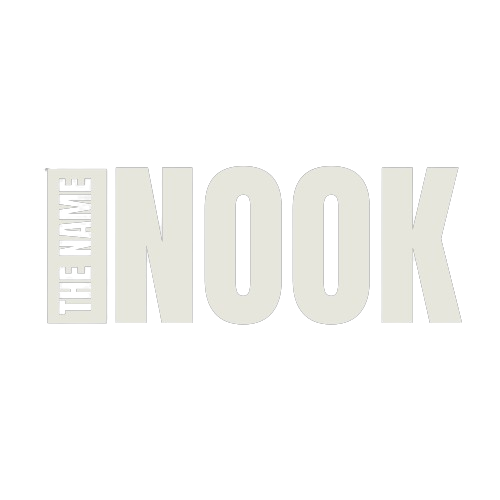In our daily conversations, we tend to use the same phrases over and over again. One common example is saying, “Thank You for Letting Me Know”
While this is a polite and appropriate response, it can start to feel repetitive—especially in professional settings. I’ve realized that using this phrase too often can make our communication seem routine or even a little impersonal.
To tackle this, I’m exploring different ways to express gratitude when someone shares information. In this blog post, I’ll go over various alternatives to “Thank You for Letting Me Know” and provide practical examples of how to use them.
Broadening our range of appreciative responses can improve our communication skills and make conversations more engaging.

Whether you’re replying to a colleague’s update, acknowledging a client’s feedback, or simply expressing appreciation, having a variety of responses can make a real difference.
What To Say Instead of “Thank You for Letting Me Know”
Here are ten alternative ways to express “Thank You for Letting Me Know” in various contexts:
- Thanks for the update!
- I really appreciate the heads-up.
- Thanks for sharing that.
- I’m grateful for the info.
- Appreciate you keeping me in the loop.
- Thanks for being upfront about this.
- I appreciate you filling me in.
- Good to know—thanks!
- Thanks for letting me know.
- I value your openness and communication.
1. Thanks for the update
“Thanks for the update” is a simple and effective way to acknowledge new information, especially in professional settings.
It lets the other person know that you’re up to speed and ready to take action if needed.
This phrase is especially handy in emails, project updates, or team meetings where staying informed is essential for keeping things on track.
Here are some examples of how to use this phrase naturally:
- After a colleague shares a project status update: “Thanks for the update! I’ll adjust the timeline accordingly.”
- In response to an email about a meeting change: “Thanks for the update! I’ve noted the new schedule.”
2. I appreciate the heads-up
“I appreciate the heads-up” is a great way to thank someone for giving you a timely update, especially when it helps you prepare or make adjustments.
It strikes a balance between casual and professional, making it useful in both work and personal conversations.
Examples:
- When a coworker warns about upcoming IT maintenance: “I appreciate the heads-up! I’ll save my documents to avoid losing any work.”
- After a friend mentions a traffic jam: “I appreciate the heads-up! I’ll take a different route home.”
3. Thanks for the information
“Thanks for the information” is a simple and polite way to acknowledge that you’ve received and noted what someone has shared.
It works in all kinds of situations, whether you’re in a formal business setting or just having a casual conversation where details are being shared for your benefit.
Examples:
- Replying to a client’s detailed email: “Thanks for the information! It really helps us understand your requirements better.”
- After receiving instructions from your manager: “Thanks for the information! I’ll get started on that right away.”
4. I’m grateful for the notice
“I’m grateful for the notice” is a way to show genuine appreciation for being informed in advance, especially when the information helps prevent misunderstandings or logistical issues.
This phrase is particularly useful when the update allows you to adjust plans or avoid potential problems.
Examples:
- After learning about an early deadline: “I’m grateful for the notice! I’ll need to make some quick adjustments to our plan.”
- When a service provider notifies you of a scheduled disruption: “I’m grateful for the notice! This gives me time to make the necessary arrangements.”
5. Thank you for keeping me informed
“Thank you for keeping me informed” is a great way to acknowledge ongoing updates, especially when staying in the loop is important over time.
It’s a polite and appreciative way to encourage continuous communication and show that you value the updates being shared.
Examples:
- During a long-term project with regular updates: “Thank you for keeping me informed! It really helps me track our progress.”
- When staying updated on a technical issue: “Thank you for keeping me informed about the developments—I appreciate being in the loop.”
6. Appreciate your transparency
“Appreciate your transparency” expresses gratitude for clear, honest, and open communication.
This phrase is especially valuable in situations where it’s important to be straightforward, such as during negotiations, feedback sessions, or when talking about sensitive topics. It helps build trust and encourages openness in both personal and professional relationships.
Examples:
- When a colleague is upfront about challenges in a project: “Appreciate your transparency! It really helps us tackle these issues more effectively.”
- After a friend shares personal concerns: “Appreciate your transparency; it helps me understand how I can support you better.”
7. Thanks for filling me in
“Thanks for filling me in” is a casual and appreciative way to thank someone for updating you on details you were previously unaware of or missed, especially after being absent. It’s a simple yet thoughtful way to acknowledge the effort someone put into bringing you up to speed.
This phrase works well in both professional and informal settings.
Examples:
- After coming back from vacation and getting a briefing from a coworker: “Thanks for filling me in on what I missed.”
- When a friend updates you on another friend’s situation: “Thanks for filling me in! I’ll reach out to them.”
8. Good to know, thanks
“Good to know, thanks” is a short and informal way to acknowledge that the information shared was useful or helpful.
It’s often used in casual conversations or emails where the information doesn’t need a follow-up, but it’s still appreciated.
Examples:
- When a colleague shares a helpful tip: “Good to know, thanks! I’ll definitely use that shortcut next time.”
- In response to a service update from a provider: “Good to know, thanks! I’ll adjust my schedule accordingly.”
9. Thanks for the notification
“Thanks for the notification” is a more formal way to acknowledge that you’ve received an alert or notice.
It’s especially useful in administrative settings or when responding to automated messages or formal communications. This phrase confirms that you’ve received and understood the information provided.
Examples:
- In response to an email about system maintenance: “Thanks for the notification; we’ll make sure all data is backed up.”
- After receiving a legal update related to your work: “Thanks for the notification; I’ll review the changes and update our compliance procedures.”
10. I value your communication
“I value your communication” is a meaningful way to express appreciation. It recognizes not just the specific information someone has shared, but also the overall relationship and ongoing dialogue with the speaker.
This phrase is especially useful in situations where communication has been particularly helpful or when you want to encourage further conversation.
Here are some examples of how it might be used:
- When speaking to a team member who frequently provides updates: “I value your communication; it keeps our project on track.”
- During a performance review with an employee: “I value your communication; your regular updates help streamline our operations.”

1 thought on “10 Other Amazing Ways to Say “Thank You for Letting Me Know” (With Examples)”